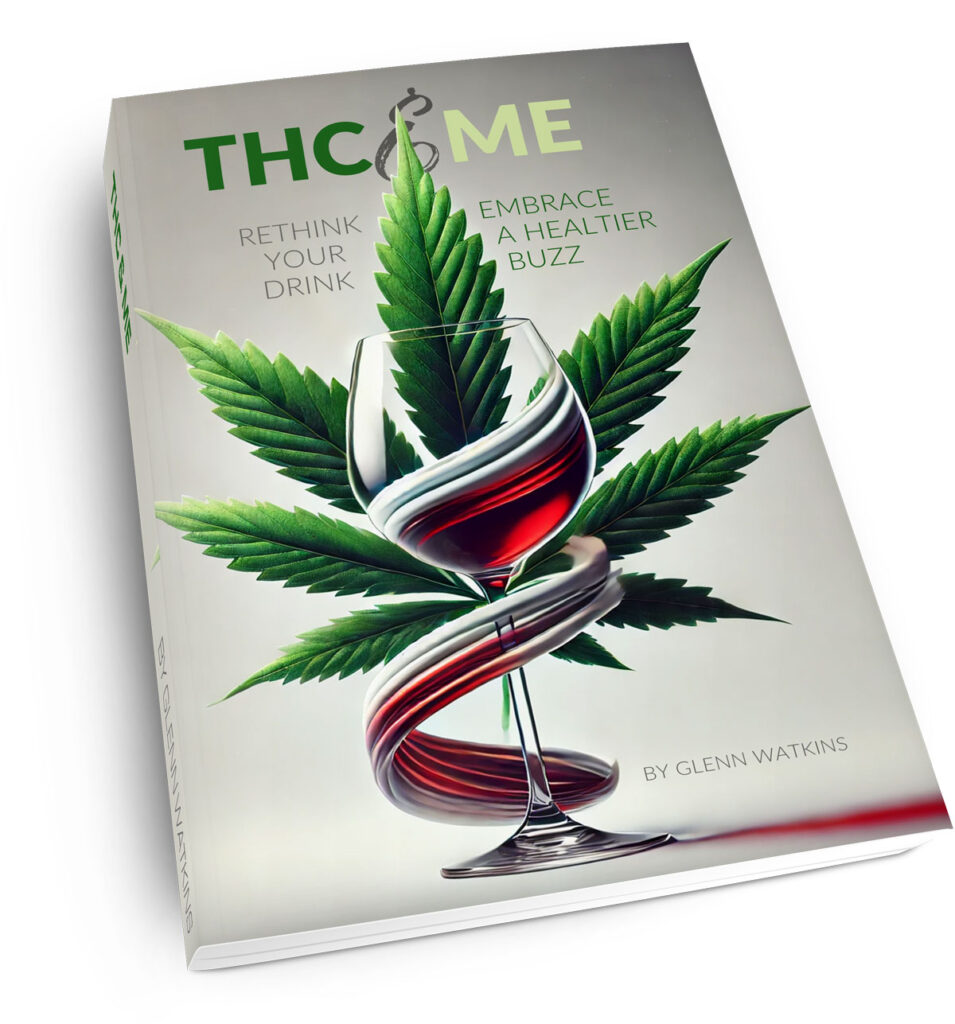
Delta 10 THC Benefits Explained Compared to Delta 8
Are you curious about the differences between Delta 10 and Delta 8 THC? As cannabis options grow, understanding their unique benefits can help you choose what suits your needs. This post will discuss the uplifting effects of Delta 10 compared to the calming properties of Delta 8. Readers will gain insights into how each cannabinoid can enhance wellness, along with tips on safety and product selection. By clarifying these distinctions, this article aims to help individuals make informed choices about their cannabis experience.
Key Takeaways
- Delta 10 THC offers energizing effects, while Delta 8 THC provides calming benefits
- Both cannabinoids can stimulate appetite and support overall well-being
- Understanding dosing is crucial for safely navigating individual effects of each cannabinoid
- Third-party lab testing ensures the safety and quality of THC products for consumers
- Legal status of Delta 10 and Delta 8 THC varies by state and requires careful consideration
Understanding Delta 10 THC and Its Relation to Delta 8

delta 10 THC represents a newer cannabinoid that is gaining attention for its distinct properties. This section will examine how Delta 10 differs chemically from Delta 8, how both cannabinoids occur naturally and are produced, and the specific hemp sources for each. Understanding these differences can provide insights into their interaction with receptors in the body, potentially influencing choices for medication and consumption methods, including how they may interact with taste on the tongue.
Defining Delta 10 THC a Newer Cannabinoid
Delta 10 THC is recognized as a newer cannabinoid that is drawing interest for its unique effects and potential benefits. Unlike its cousin Delta 8, Delta 10 has different chemical properties, which may influence its effects on the body and its interactions with receptors. As an appetite stimulant, Delta 10 THC may offer advantages for those looking to increase their food intake, especially in medical contexts where appetite support is essential. Understanding how these cannabinoids interact, such as through taste and potential contamination concerns in various products like carts, can guide informed choices in consumption.
| Cannabinoid | Properties | Appetite Stimulant | Taste Influence | Contamination Risks |
|---|---|---|---|---|
| Delta 8 THC | Similar to Delta 9, mild psychoactive effects | Present | May enhance flavor profile | Low, varies by product |
| Delta 10 THC | Distinct effects, often more energetic | Yes, noted as an appetite stimulant | Potentially alters taste experience | Low, but ensure clean sourcing |
How Delta 10 Differs Chemically From Delta 8
Delta 10 THC differs chemically from Delta 8 primarily in its molecular structure, which ultimately influences its effects on the body. While both cannabinoids interact with the endocannabinoid system, research suggests that Delta 10 may lead to a different release of neurotransmitters, resulting in more energetic effects. Additionally, the presence of specific terpenes can vary between the two, affecting their overall therapeutic potential, including how they may help alleviate disease symptoms or enhance appetite.
The Natural Occurrence and Production of Delta 10 and Delta 8
Delta 10 and Delta 8 THC are naturally occurring cannabinoids found in hemp plants, though Delta 8 is typically more prevalent. Both cannabinoids can be produced synthetically, often derived from CBD through chemical processes that alter their molecular structures. When selecting products, consumers should look for a certificate of analysis to confirm the cannabinoid content and ensure the product’s safety and quality, particularly when seeking support for stress or mood enhancement, as prescribed by a physician:
- Delta 8 is more naturally abundant in hemp.
- Delta 10 is often produced through conversion processes.
- Certificates of analysis validate product content and safety.
Recognizing the Hemp Source for Both Compounds
Recognizing the hemp source for both Delta 10 and Delta 8 THC can significantly impact their effectiveness and safety. Delta 8 is generally more abundant in the hemp plant, providing a suitable base for extraction, while Delta 10 is often synthesized from pre-existing cannabinoids like CBD, necessitating attention to production methods. Understanding the legal implications surrounding the sourcing and production of these compounds is essential, as regulations may vary, influencing energy levels and potential muscle interactions, ultimately affecting mental clarity and brain function.
| Cannabinoid | Naturally Occurring Source | Synthetic Production | Legal Considerations |
|---|---|---|---|
| Delta 8 THC | More prevalent in hemp plants | Less common, primarily extracted | Generally legal under the Farm Bill |
| Delta 10 THC | Less natural abundance | Typically derived from CBD | Status may vary by state law |
Delta 10 THC offers a unique perspective in the world of cannabis. Its uplifting effects invite curiosity, promising a different experience worth exploring.
Examining the Uplifting Effects Attributed to Delta 10 THC

Users have reported increased energy levels and enhanced focus while using Delta 10 THC, making it suitable for morning or daytime routines. This cannabinoid provides a less intense psychoactive experience than Delta 9, potentially improving mood without overwhelming the nervous system. Consumers have noted improved creativity and overall well-being, emphasizing the relevance of proper dosing and nutrition to experience its analgesic benefits.
Increased Energy Levels Reported by Users
Users have noted that Delta 10 THC contributes to increased energy levels, making it a favorable choice for those seeking a boost during the day. This cannabinoid, often found in liquid extracts, may help alleviate inflammation without the intense effects typically associated with Delta 9 THC. Under the Agriculture Improvement Act of 2018, the use of hemp-derived products, including Delta 10, remains legal, allowing consumers to explore its uplifting benefits safely while being mindful of product quality and safety, including confirmations of fire retardant standards in manufacturing.
Potential for Sharpened Focus and Creativity
Delta 10 THC may enhance focus and creativity due to its unique chemical structure, which sets it apart from other cannabinoids like Delta 8. Users often report feeling more energized and mentally clear, making it an attractive option for those needing an extra boost during tasks requiring concentration. As these qualities can lead to increased productivity, understanding how Delta 10 influences cognitive function can help individuals explore its potential benefits while being mindful of factors such as weight and implications for passing a drug test, especially in professional settings.
A Less Intense Psychoactive Experience Than Delta 9
Delta 10 THC offers a psychoactive experience that is less intense than that of Delta 9 THC, making it an appealing choice for those seeking relaxation without significant impairment. This cannabinoid interacts with the endocannabinoid system and may provide anxiolytic effects, helping to alleviate anxiety while enhancing cognition and focus. Users often report improved mood, allowing them to engage in daily activities without the overwhelming sensations associated with higher THC levels, promoting both relaxation and mental clarity.
- Delta 10 THC provides a gentler psychoactive effects.
- It may help with relaxation and anxiety reduction.
- The impact on cognition can lead to enhanced focus.
- Lower intensity makes it suitable for daytime use.
Suitability for Morning or Daytime Routines
Delta 10 THC is increasingly praised for its potential suitability in morning or daytime routines, thanks to its energizing effects. Users often report feeling uplifted without the intense psychoactive impact commonly associated with Delta 9 THC. This can lead to improved focus and productivity throughout the day, making it an appealing option for individuals looking to navigate tasks without experiencing tachycardia or discomfort. Research has indicated that Delta 10 oil may also help mitigate headaches while promoting overall well-being, positioning it as a favorable alternative for those under the scrutiny of the Drug Enforcement Administration and seeking legal alternatives to enhance daily functioning.
User Accounts of Mood Improvement With Delta 10
User accounts indicate that Delta 10 THC may significantly enhance mood, providing an uplifting experience distinct from other cannabinoids. Many individuals report feeling more cheerful and motivated after using Delta 10, which may be attributed to its unique chemical formula and its interaction with the brain‘s receptors. Unlike Delta 8, which may have a calming effect, Delta 10’s potency in promoting positivity suggests potential as a natural alternative to traditional mood-enhancing drugs, allowing users to enjoy a more vibrant state of mind without excessive sedation.
Delta 10 THC brings a lightness that lifts the spirit, yet there’s another side to consider. Delta 8 THC offers a quieter comfort, a promise of calm worth exploring.
Assessing the Calming Properties Associated With Delta 8 THC

Delta 8 THC is recognized for its calming properties, often reported to offer relaxation and stress reduction. Users frequently experience appetite stimulation linked to its effects, alongside a gentler euphoria compared to traditional THC. Many prefer Delta 8 for evening or nighttime use, benefiting from its interaction with the body’s endocannabinoid system and cannabinoid receptors, which may support memory and overall well-being.
Reports of Relaxation and Stress Reduction
Numerous reports suggest that Delta 8 THC provides relaxation and stress reduction for many users. This cannabinoid interacts with the endocannabinoid system, which may help decrease heart rate and alleviate symptoms like nausea associated with anxiety. For individuals in nursing or those concerned about addiction, Delta 8 often presents a hybrid option, balancing desired calming effects without overwhelming psychoactivity.
| Property | Delta 8 THC |
|---|---|
| Relaxation | Promotes a calming effect |
| Stress Reduction | May help lower heart rate |
| Nausea Alleviation | Can reduce symptoms associated with anxiety |
| Use Context | Suitable for nursing and individuals with addiction concerns |
Appetite Stimulation Linked to Delta 8 Usage
Delta 8 THC has been linked to appetite stimulation, primarily due to its interactions with the body’s endocannabinoid system, which may increase dopamine levels, a chemical compound associated with pleasure and reward. This enhanced perception of taste and smell can lead to a more enjoyable eating experience, making it particularly appealing for individuals facing difficulties in maintaining a healthy appetite. For those who experience pain or discomfort that diminishes their desire to eat, Delta 8 can provide significant relief by promoting relaxation and reducing anxiety, ultimately leading to improved nutritional intake:
- Delta 8 THC increases dopamine levels.
- The compound enhances perception connected to food.
- Many users report improved appetite and enjoyment of meals.
- It helps those experiencing pain or anxiety related to eating.
A Gentler Euphoria Compared to Traditional THC
Delta 8 THC is often praised for providing a gentler euphoria compared to traditional THC, making it an appealing option for users seeking a lighter psychoactive experience. With its milder effects, Delta 8 is frequently delivered through tinctures, allowing for precise dosing and quick absorption. For individuals managing anxiety or discomfort, this alternative may enhance overall well-being without the overwhelming sensations associated with higher THC varieties, promoting relaxation and ease during daily activities.
| Property | Delta 8 THC |
|---|---|
| Intensity of Euphoria | Gentler compared to tradition THC |
| Delivery Method | Commonly offered as tincture |
| User Experience | Promotes relaxation without overwhelming effects |
| Suitable For | Individuals seeking relief from anxiety or discomfort |
Common Preferences for Evening or Nighttime Application
Many users prefer Delta 8 THC for evening or nighttime application due to its calming properties and ability to enhance relaxation. Its more gentle psychoactive effects make it suitable for unwinding after a long day, allowing individuals to experience a tranquil transition into sleep. By utilizing Delta 8 specifically during these hours, users can alleviate stress and promote a restful night without the intensity associated with traditional THC varieties, ensuring they wake up refreshed and ready for the day ahead.
How Delta 8 Interacts With the Body's Endocannabinoid System
Delta 8 THC interacts with the body’s endocannabinoid system (ECS) by binding to the CB1 and CB2 receptors, which are crucial for regulating various physiological processes. This interaction helps modulate stress and anxiety levels, making Delta 8 an effective option for individuals seeking relaxation and calm. By promoting a sense of well-being, Delta 8 THC not only soothes the mind but also supports physical comfort, which is essential for those managing chronic pain or discomfort.
The calming effects of Delta 8 THC linger, giving a sense of peace. Yet, as the landscape shifts, one must ponder the distinct experiences offered by Delta 10 and how they compare.
Delta 10 Versus Delta 8 a Direct Comparison of Experiences

A comparative analysis of Delta 10 THC and Delta 8 THC reveals distinct differences in psychoactive potency levels, with Delta 10 often exhibiting sativa-like qualities that contrast sharply with the indica characteristics of Delta 8. This section will also cover the duration and onset time differences between the two cannabinoids, helping users tailor their choices based on desired outcomes. Anecdotal reports will be reviewed to present side-by-side user feedback, providing practical insights into their experiences.
Contrasting Psychoactive Potency Levels
Delta 10 THC and Delta 8 THC exhibit notable differences in psychoactive potency levels, influencing user experiences significantly. Delta 10 is generally regarded as having a more energetic and cerebral effect, akin to sativa strains, while Delta 8 leans toward a milder, more relaxing experience typically associated with indica strains. This distinction allows users to select the cannabinoid that best meets their needs, depending on whether they seek a boost in creativity and focus or a calming effect at the end of the day:
| Cannabinoid | Psychoactive Effects | Typical Experience | Best Use Time |
|---|---|---|---|
| Delta 8 THC | Milder, calming | Relaxation and stress reduction | Evening or nighttime |
| Delta 10 THC | More energetic | Boost in creativity and focus | Morning or daytime |
Sativa Like Qualities of Delta 10 Opposite Indica Like Delta 8
Delta 10 THC is recognized for its sativa-like qualities, delivering energetic and uplifting effects that contrast significantly with the calming, indica-like experience attributed to Delta 8 THC. Users often report that Delta 10 promotes creativity and enhances focus, making it ideal for tasks requiring mental clarity during the day. In contrast, Delta 8 is preferred for relaxation and unwinding, especially during evening hours when users seek to alleviate stress and promote restful sleep:
- Delta 10 THC offers energizing and cerebral effects.
- Delta 8 THC provides a calming and relaxing experience.
- Users can choose based on desired outcomes for productivity or relaxation.
Duration and Onset Time Differences
The duration and onset time of Delta 10 THC compared to Delta 8 THC can significantly influence user experience. Delta 10 typically produces effects that begin within 15 to 30 minutes, often lasting for several hours, depending on individual tolerance and product formulation. In contrast, Delta 8 THC might take a bit longer to take effect, usually felt after 30 to 45 minutes, with a duration that can vary between three to five hours. Understanding these differences allows users to select the cannabinoid that best aligns with their desired outcomes, whether seeking an immediate boost of energy from Delta 10 during daytime activities or opting for Delta 8’s soothing effects in the evening to unwind after a long day.
Tailoring Your Choice Based on Desired Outcome
When choosing between Delta 10 THC and Delta 8 THC, it’s essential to consider the specific outcomes desired from their use. Delta 10 THC is typically favored for its uplifting and energizing effects, making it suitable for activities requiring focus and creativity during the day. In contrast, Delta 8 THC often serves users seeking relaxation and stress relief, particularly in the evening or at nighttime. By aligning the choice of cannabinoid with personal goals—whether it’s enhancing productivity or unwinding after a long day—users can effectively tailor their cannabis experience:
- Delta 10 THC for daytime energy and creativity.
- Delta 8 THC for evening relaxation and stress reduction.
- Individual tolerance and desired effects guide choices.
Anecdotal Reports Side by Side User Feedback
Anecdotal reports indicate that users often have distinct experiences with Delta 10 THC compared to Delta 8 THC. Many individuals favor Delta 10 for its uplifting and energizing properties, noting higher levels of focus and creativity during daytime activities. In contrast, users who prefer Delta 8 frequently mention relaxation and stress relief as their primary benefits, highlighting its effectiveness for evening use:
| Cannabinoid | User Experience | Commonly Reported Effects | Preferred Time of Use |
|---|---|---|---|
| Delta 8 THC | Calming and relaxing | Stress reduction, improved sleep | Evening or nighttime |
| Delta 10 THC | Energetic and creative | Enhanced focus, increased productivity | Morning or daytime |
The differences in Delta 10 and Delta 8 experiences lay the groundwork for something deeper. Understanding their potential wellness benefits can reshape how one views their health.
Potential Wellness Advantages Offered by Delta 10 and Delta 8

Delta 10 and Delta 8 THC offer various wellness advantages that appeal to users seeking different therapeutic effects. Both cannabinoids may explore neuroprotective possibilities and exhibit anti-nausea properties, contributing to physical comfort. Additionally, their influence on sleep patterns varies, making it essential for users to select the right cannabinoid based on specific wellness goals and desired outcomes.
Exploring Neuroprotective Possibilities
Delta 10 THC and Delta 8 THC both exhibit potential neuroprotective properties, which may contribute to overall brain health. Research indicates that these cannabinoids could help shield the brain from oxidative stress and inflammation, which are factors linked to neurodegenerative diseases. Users seeking cognitive support may find value in incorporating either cannabinoid into their wellness routines, particularly for enhancing mental clarity and promoting neuroprotection as part of a holistic approach to health.
Anti Nausea Properties Found in Cannabinoids
Both Delta 10 THC and Delta 8 THC are recognized for their potential anti-nausea properties, which can be beneficial for individuals experiencing symptoms from various conditions, including chemotherapy-induced nausea or motion sickness. Research indicates that cannabinoids may interact with the endocannabinoid system, helping to balance bodily functions and alleviate nausea sensations. Users seeking relief often find that these cannabinoids provide a safer alternative to traditional medication, offering a more natural option to manage their symptoms.
Support for Physical Comfort and Ease
Both Delta 10 THC and Delta 8 THC may offer significant support for physical comfort by interacting with the body’s endocannabinoid system. Many users have reported experiences of reduced discomfort and increased feelings of ease, making these cannabinoids appealing options for managing symptoms associated with chronic pain, inflammation, and stress. Incorporating Delta 10 and Delta 8 into a wellness routine could provide individuals with a more natural alternative for enhancing their overall comfort:
- Delta 10 THC may help reduce physical discomfort and promote relaxation.
- Delta 8 THC is often associated with alleviating symptoms of anxiety and stress.
- Both cannabinoids can provide a holistic approach to physical well-being.
How Each Cannabinoid Might Influence Sleep Patterns
Delta 10 THC and Delta 8 THC can influence sleep patterns in different ways, recognizing the distinct properties of each cannabinoid. Delta 8 is often associated with promoting relaxation and a restful state, making it suitable for evening use to aid in falling asleep. In contrast, Delta 10 may enhance energy and focus, which might not be conducive to restful sleep; however, it can still provide relaxation without the intense psychoactive effects of Delta 9 THC. Understanding how each cannabinoid interacts with the body’s endocannabinoid system can help users choose the appropriate option for their specific sleep needs:
| Cannabinoid | Effect on Sleep | Best Use Time | Potential Benefits |
|---|---|---|---|
| Delta 8 THC | Promotes relaxation and restful sleep | Evening or nighttime | Aids in improving sleep quality |
| Delta 10 THC | Potentially energizing, less conducive for sleep | Daytime use | May help with relaxation without sedation |
Selecting Delta 10 or Delta 8 for Specific Wellness Goals
When selecting between Delta 10 and Delta 8 THC for specific wellness goals, individuals should consider their desired outcomes. Delta 10 THC is often preferred for those seeking increased energy and focus during the daytime, making it suitable for tasks requiring mental clarity. In contrast, Delta 8 THC is commonly chosen for its calming effects and is ideal for relaxation and stress relief, particularly in the evening, supporting better sleep and overall well-being. Understanding these distinctions can assist users in achieving optimal results based on their specific needs.
As the benefits of Delta 8 and Delta 10 unfold, understanding their legal landscape becomes essential. One must tread carefully through laws and product choices to ensure a safe and rewarding experience.
Navigating Legality Safety and Product Considerations

The current legal standing of Delta 10 and Delta 8 THC requires careful consideration, as regulations vary by state. Users should be aware of potential side effects associated with each compound, ensuring safety. Third-party lab testing results are essential for verifying product quality. Identifying reputable sources and adhering to dosage recommendations, especially for new users, can enhance the overall experience and effectiveness of these cannabinoids.
The Current Legal Standing of Delta 10 and Delta 8 THC
The legal status of Delta 10 and Delta 8 THC varies across different jurisdictions, requiring users to stay informed about local regulations. Generally, both cannabinoids are considered legal under the 2018 Farm Bill, provided they are derived from hemp and contain less than 0.3% Delta 9 THC. However, some states have implemented restrictions or outright bans on Delta 8 and Delta 10 products, underscoring the importance for consumers to verify the legal standing in their area before purchasing these products.
Understanding Potential Side Effects for Each Compound
Understanding the potential side effects of Delta 10 and Delta 8 THC is essential for informed use. Users may experience mild reactions such as dry mouth, increased heart rate, or appetite changes with both cannabinoids. Knowing these effects can help individuals manage their experience better, especially for those new to cannabis products or with pre-existing health conditions.
| Cannabinoid | Common Side Effects | Frequency of Occurrence | Management Tips |
|---|---|---|---|
| Delta 8 THC | Dry mouth, mild sedation | Often reported | Stay hydrated, start with low doses |
| Delta 10 THC | Increased heart rate, anxiety | Less frequent | Use in a calm environment, choose lower doses |
Importance of Third Party Lab Testing Results
Third-party lab testing serves as a crucial component in ensuring the safety and quality of Delta 10 and Delta 8 THC products. These independent analyses confirm the cannabinoid content, potency, and the absence of harmful contaminants, which greatly assists consumers in making informed choices. By reviewing lab test results, users can confidently select products that meet their specific health needs while minimizing the risk of consuming low-quality or unsafe items.
| Testing Aspect | Importance |
|---|---|
| Cannabinoid Content | Verifies the exact levels of Delta 8 and Delta 10 present in the product. |
| Contaminant Testing | Checks for the presence of pesticides, heavy metals, and solvents. |
| Consumer Safety | Ensures that users are purchasing clean, safe products that align with labeling. |
Identifying Reputable Sources for Delta 10 and Delta 8 Products
Identifying reputable sources for Delta 10 and Delta 8 THC products is essential for ensuring quality and safety. Consumers should seek out vendors who provide third-party lab testing results, which verify the cannabinoid content and check for harmful contaminants. Additionally, purchasing from established brands known for their transparency and integrity can help users make informed choices that meet their health needs, ultimately enhancing their experience with these cannabinoids.
Dosage Recommendations Starting Points for New Users
For new users considering Delta 10 THC, starting with a low dosage is essential to gauge individual tolerance and experience the cannabinoid‘s effects safely. It is recommended that individuals begin with a dosage of 5 to 10 milligrams, especially if they are also new to cannabis products. Monitoring how the body responds can help users adjust and find the right amount for their needs without experiencing overwhelming effects.
- Begin with a low dosage of 5 to 10 milligrams.
- Monitor individual tolerance and effects.
- Adjust dosage as needed based on personal experience.
Conclusion
Understanding the benefits of Delta 10 THC in comparison to Delta 8 THC is crucial for informed choices regarding cannabis consumption. Delta 10 offers unique effects that may enhance energy, focus, and creativity, making it ideal for daytime use. In contrast, Delta 8 tends to provide a calming experience, suitable for relaxation and nighttime routines. By recognizing these distinct properties, users can tailor their cannabinoid selections to align with their specific wellness goals and experiences.

